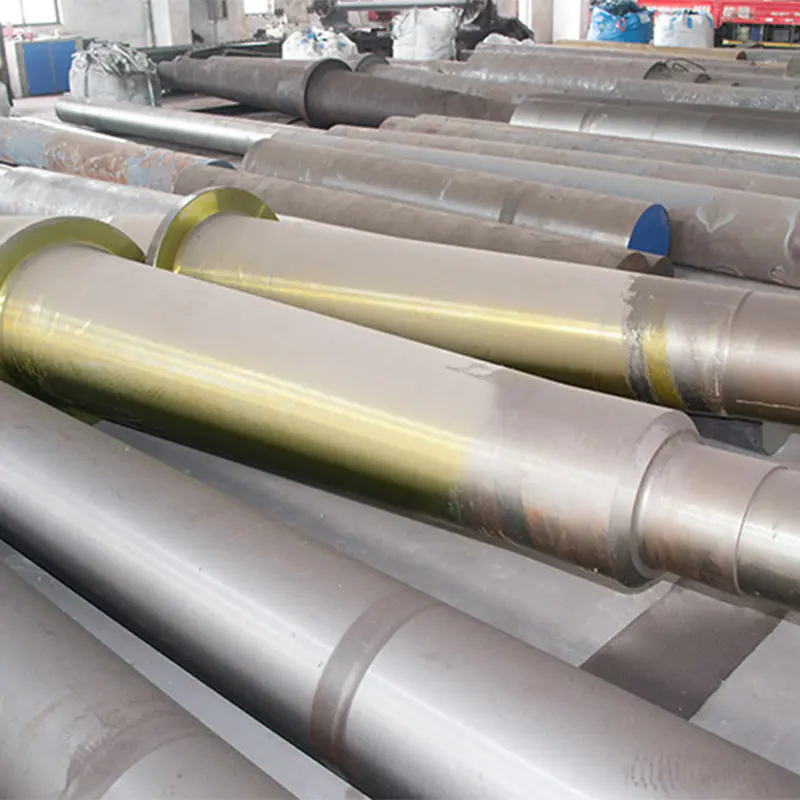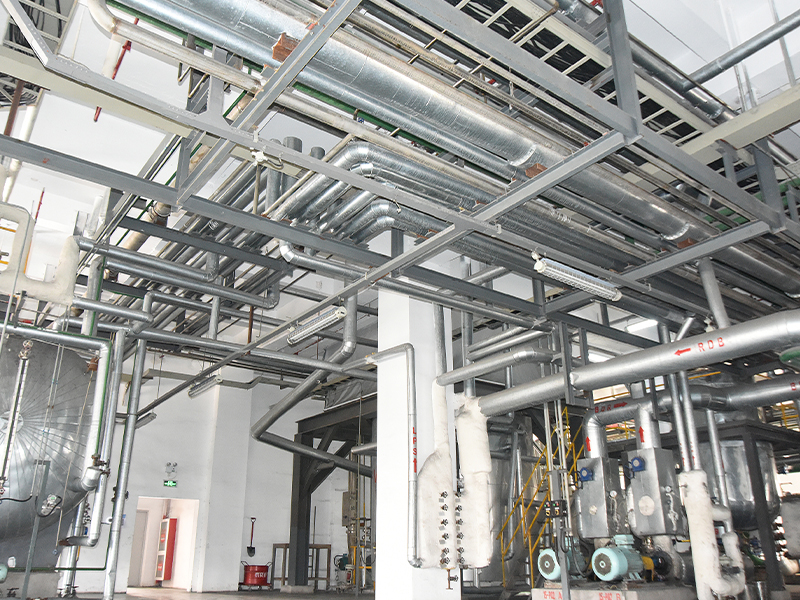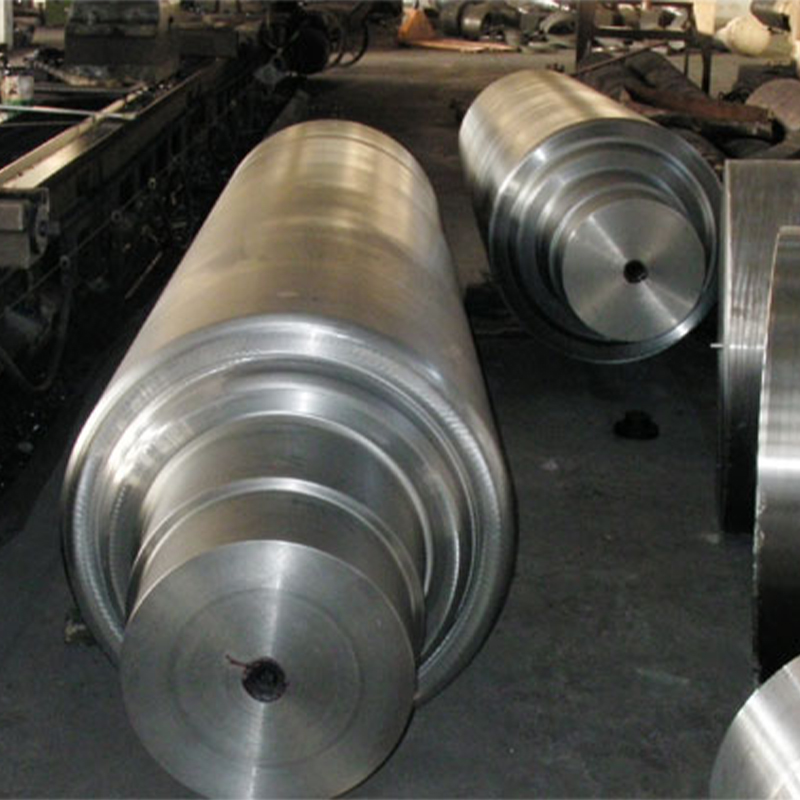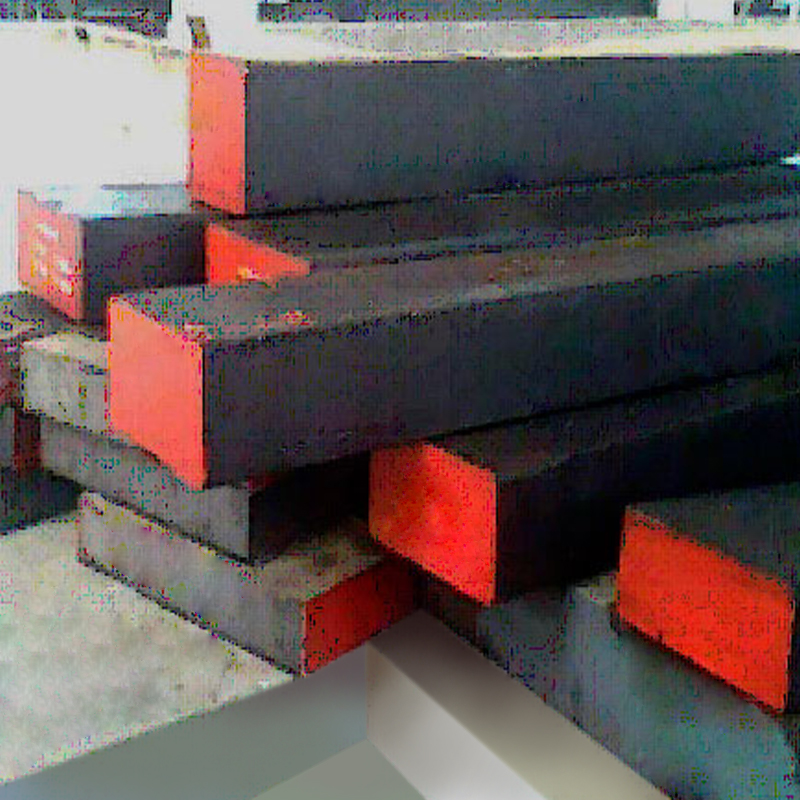
In the automotive sector, forged round steel is widely used for the manufacture of high-performance components that are crucial for vehicle safety, efficiency, and reliability. Key components include crankshafts, connecting rods, axles, suspension components, gears, and camshafts, all of which are subjected to heavy loads, extreme forces, and constant cyclic stresses during operation. The forging process enhances the mechanical properties of round steel, creating a dense, uniform microstructure that improves fatigue resistance, tensile strength, and toughness. This is especially critical in components like crankshafts, which must endure the torsional stress of engine operation, and axles, which bear the weight and forces transferred during driving. Additionally, forged round steel components can withstand high-temperature environments within engines without losing their strength or deforming, contributing to the overall performance and longevity of the vehicle. Forged steel is preferred over cast or rolled steel in automotive applications because of its ability to handle the demanding conditions of high-performance, high-stress situations. It can also be further heat-treated to achieve the desired hardness and strength specific to the application. The improved structural integrity of forged round steel helps prevent failures that could lead to expensive repairs or safety hazards, making it a critical material in the automotive industry.
Forged round steel plays a critical role in the heavy machinery sector, where components are often subjected to extremely high forces and abrasive conditions. This includes parts like gears, shafts, pins, rollers, bushings, couplings, and axles, all of which are designed to withstand the constant wear and tear experienced in industrial machines, construction equipment, and mining operations. The forging process ensures that the material has high density and strength, minimizing the risk of cracks, fractures, and failures under load. For instance, in excavators, bulldozers, and other construction equipment, forged round steel is used in components like drive shafts and axle housings, which must endure high torsional forces and resist the abrasive wear caused by rough terrain and constant movement. The toughness and resistance to fatigue of forged round steel allow machinery to operate efficiently under harsh conditions, reducing the need for maintenance and improving uptime.
The oil and gas industry operates in environments that require materials with exceptional strength, corrosion resistance, and durability under extreme conditions. Forged round steel is extensively used in the production of components for offshore drilling rigs, pipelines, and refineries. Key applications include drill rods, pressure vessels, valves, flanges, couplings, and fittings. These components must endure high-pressure environments, exposure to corrosive substances like saltwater and oil, and extreme temperatures. For example, drill rods made from forged round steel can handle the high impact and rotational forces during drilling operations, while valves and flanges must resist the corrosive effects of crude oil and natural gas, as well as the high pressures within pipelines. The material’s ability to maintain integrity at high temperatures, combined with its fatigue resistance, ensures the safety and reliability of oil and gas infrastructure. Moreover, forged round steel offers superior dimensional stability and can be heat-treated to enhance its performance in high-stress applications, making it essential for critical equipment in oil extraction and transportation.
Forged round steel plays an important role in the marine industry, where it is used to produce key components exposed to harsh environmental conditions such as saltwater, high humidity, and extreme mechanical stress. Components like propeller shafts, rudder stocks, anchor chains, and structural supports for ships and offshore platforms are often made from forged steel. These parts must resist corrosion, fatigue, and high mechanical stress to ensure safe and efficient operation in maritime environments. The forging process enhances the material’s strength and durability, making it resistant to the abrasive forces encountered in marine operations, such as the impact between ship hulls and rough waters. Propeller shafts, which transfer engine power to the propellers, are subject to constant torsional stresses, while rudder stocks are exposed to significant forces from maneuvering the vessel. Forged round steel components in these applications ensure that ships and offshore platforms remain operational even in the most demanding marine environments, where failure could result in costly downtime and safety risks.



 English
English русский
русский Español
Español عربى
عربى



